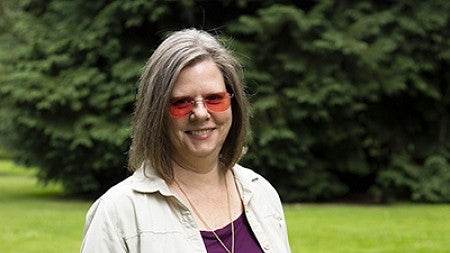
English
cjb@uoregon.edu | 541-346-2695
Courses: ENG 420 Art of the Sentence
In my classes you will:
- Make connections to lived experiences and real life challenges.
- Practice foundational, transferrable skills.
I was invited into the Teaching Academy because:
- I participated in the UO Summer Teaching Institute.
In what ways are you working to make your teaching inclusive?
I learn my students' names on the first day of class and make them welcome. The course as a whole relies on the observations and experiences of students who each bring valuable perspective on language to our discussions. Most importantly, perhaps, I believe that not knowing or being unsure can be a position of strength, the starting place for real inquiry. An important goal in my class is that students actively develop strategies for problem-solving when faced with a question of interpretation.
What do you do in terms of professional engagement with the teaching and learning culture on campus or nationally?
I have participated in TEP workshops for a couple of decades and have been leading a program where we actively engaged with the multitude of great answers to our central question: what are the best ways to teach writing? I think about professional engagement with teaching culture going in two directions: my active search for valuable resources outside my classroom that will assist my students and my active listening to what the particular students in my class need in order to succeed.
In what ways was your teaching in this course research-led—informed by research on how students learn and inflected by UO's research mission?
I use transparent assignment design to assist students' full access to the goals and purposes of projects. Assignments build upon each other and are supported by low-stakes class activities that are often playful and creative entry points into the more analytic work of assignments.
What made you want to be a teacher? Who is a role model for you?
Both of my parents were teachers, but my mother was the biggest influence on my work in the classroom. She taught singing and believed that everyone could and indeed should learn how to sing because everyone's voice matters. My goal as a teacher is to listen to my students so I can help them develop ideas that matter to them. My students’ voices need to be part of the wider debates about our world, and I want them to be heard.
